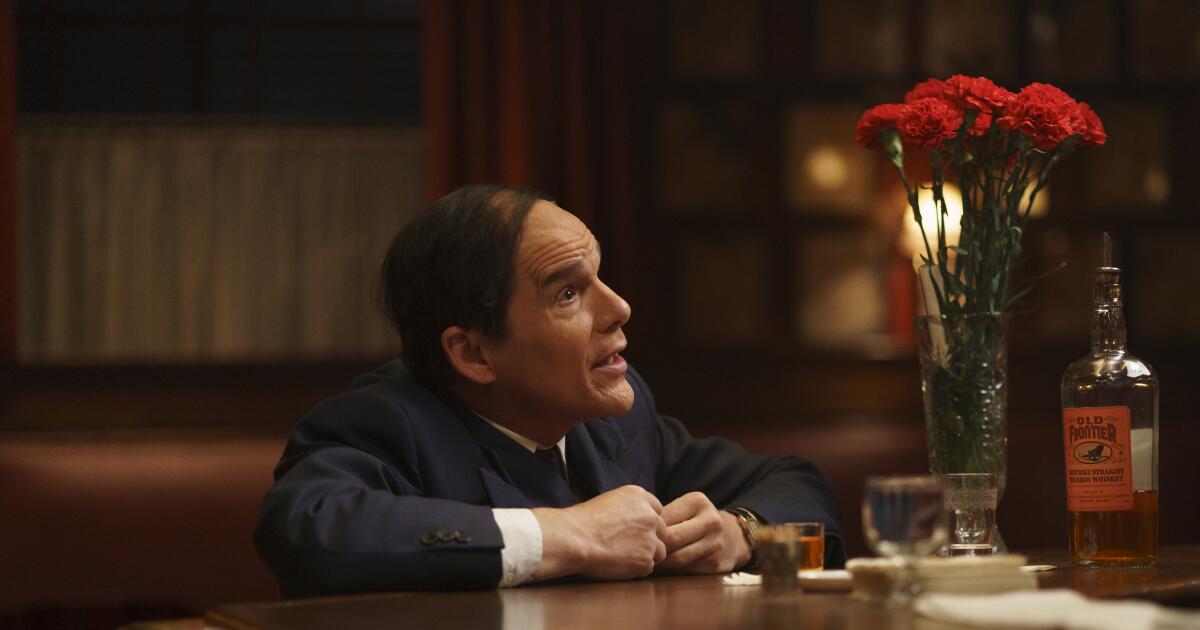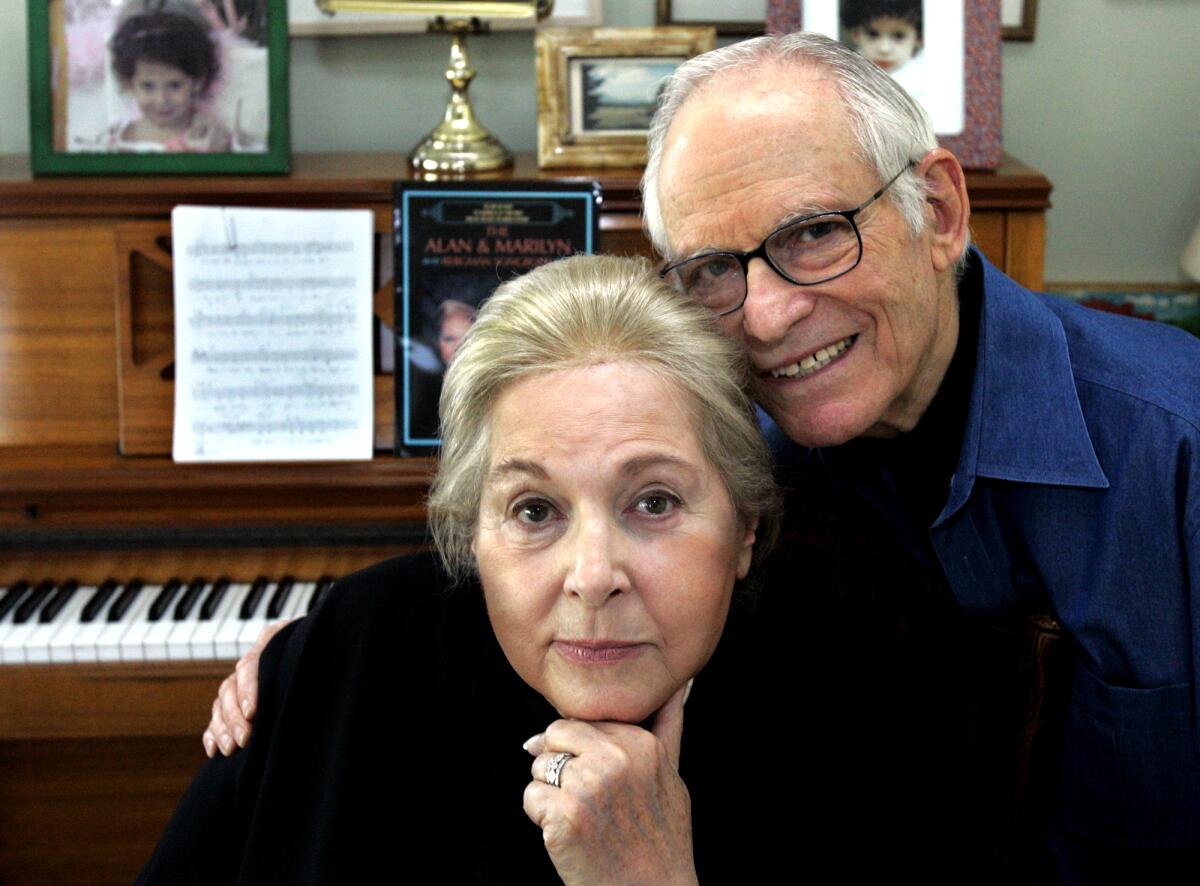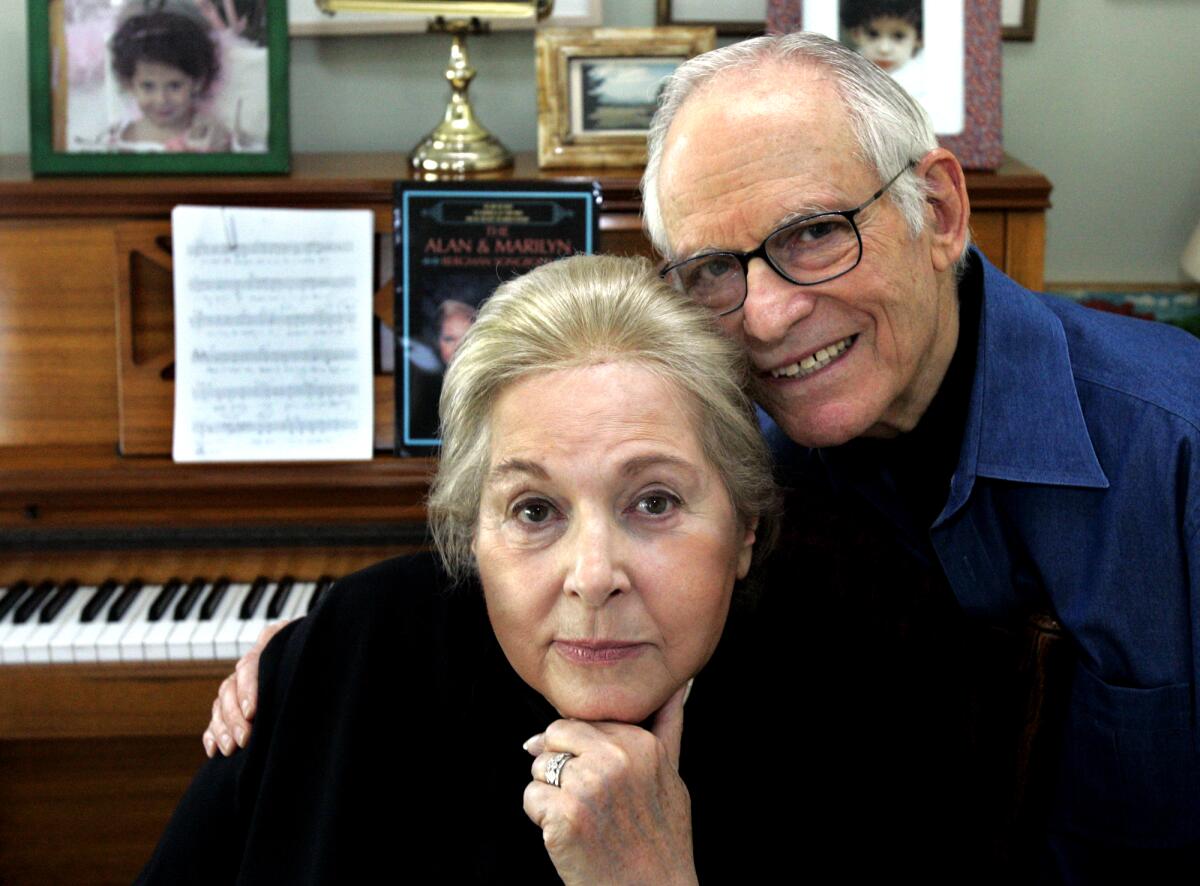‘Blue Moon’ review: Diving deep, Hawke plays a self-deluding Lorenz Hart
Many actors talk about process but Ethan Hawke has made the act of creation central to his work. He’s played musicians and writers and when he’s gone behind the camera, he’s focused on the stories of composers, novelists, movie stars and country singers both famous and forgotten. Sometimes, it feels like he’s the unofficial patron saint of art suffering, fixated on the glory and anguish of putting yourself out there in the world.
So Hawke’s portrayal of Lorenz Hart, the brilliant but troubled lyricist responsible for beloved tunes like “My Funny Valentine,” in a story set shortly before his death would seem to be just the latest chapter of a lifelong obsession. But “Blue Moon,” Hawke’s ninth collaboration with director Richard Linklater, cuts deeper than any of his previous explorations. Imagining Hart on the night of his former collaborator Richard Rodgers’ greatest triumph — the launch of “Oklahoma!” — Linklater offers a wistful look at a songwriter past his prime. But the film wouldn’t resonate as powerfully without Hawke’s nakedly vulnerable portrayal.
It is March 31, 1943, eight months before Hart’s death at age 48 from pneumonia, and Hart has just gruffly left the Broadway premiere of “Oklahoma!” Arriving early at Sardi’s for the after-party, he plants himself at the bar, complaining to bartender Eddie (Bobby Cannavale) that the show will be a massive success — and that it’s garbage. Eddie nods in a way that suggests he’s often lent a sympathetic ear to Hart’s rantings, allowing him to unload about the show’s supposedly banal lyrics and corn-pone premise and, worst of all, the fact that Rodgers will have his biggest smash the moment he stops working with Hart after nearly 25 years. “This is not jealousy speaking,” Hart insists, fooling no one.
As played by Hawke, Hart adores holding court, entertaining his captive audience with witty put-downs and gossipy Broadway anecdotes. Begging Eddie not to serve him because of his drinking problem, which contributed to the dissolution of his partnership with Rodgers, this impudent carouser would be too much to stand if he also wasn’t such fun company. But eventually, Rodgers (Andrew Scott) and his new lyricist Oscar Hammerstein II (Simon Delaney) are going to walk through that door and Hart will have to swallow his pride and pretend to be happy for them. From one perspective, “Blue Moon” is about the beginning of “Oklahoma!” as a pillar of American theater. From another, it’s Hart’s funeral.
Set almost exclusively inside Sardi’s, “Blue Moon” has the intimacy of a one-man stage show. After Hart vents about “Oklahoma!,” he readies himself for the arrival of Elizabeth (Margaret Qualley), a gorgeous Yale undergrad he considers his protégée. (He also claims to be in love with her, which baffles Eddie, who rightly assumed otherwise.) If the universal acclaim of “Oklahoma!” will force Hart to confront his professional irrelevance, maybe Elizabeth’s beaming presence — and the promise of them consummating their feelings — will be sufficient compensation.
Linklater, the man behind “School of Rock” and “Me and Orson Welles,” has made several films about creativity. (In a few weeks, he’ll debut another movie, “Nouvelle Vague,” which focuses on the making of Jean-Luc Godard’s epochal “Breathless.”) But what distinguishes “Blue Moon” is that, for once, it’s about someone else’s achievement — not the main character. Fearing he’s a has-been, the diminutive, balding Hart slowly succumbs to self-loathing. He can still spitefully quote the negative reviews for his 1940 musical “Pal Joey.” And he nurses a paranoid pet theory that Rodgers decided to collaborate with Hammerstein because he’s so much taller than Hart. (“Blue Moon” incorporates old-fashioned camera tricks to help Hawke resemble Hart’s under-five-feet frame.) Linklater’s movies have frequently featured affable underdogs, but by contrast, “Blue Moon” is an elegy to a bitter, insecure man whose view of himself as a failure has become a self-fulfilling prophecy.
Of the many artists Hawke has honored on screen, he has never depicted one so touchingly diminished — someone so consumed with envy who nonetheless cannot lie to himself about the beauty of the art around him. Turning 55 next month, Hawke shares with Hart an effusive passion for indelible work but also, perhaps, a nagging anxiety about the end of his creative usefulness. If he were younger, Hawke would have come across as self-regarding. Here, there’s only a poignantly egoless transparency, exposing the lyricist’s personal flaws — his drunkenness, his arrogance — while capturing the fragile soulfulness that made those Rodgers and Hart tunes sing.
Apropos of his relaxed approach, Linklater shoots “Blue Moon” with a minimum of fuss, but one can feel its enveloping melancholy, especially once the next generation of artists poke their head into the narrative. (Sondheim diehards will instantly identify the brash young composer identified only as “Stevie.”) But neither Linklater nor Hawke is sentimental about that changing of the guard.
That’s why Hawke breaks your heart. All of us are here for just a short time: We make our mark and then the ocean comes and washes it away. In an often remarkable career, Hawke has never embraced that truth so completely as he does here. Ultimately, maybe the work artists leave behind isn’t their most important contribution — maybe it’s the love they had for artistry itself, a passion that will inspire after they’re gone. That’s true of Lorenz Hart, and it will hopefully prove true of Hawke and this understated but profound film for years to come.
‘Blue Moon’
Rated: R, for language and sexual references
Running time: 1 hour, 40 minutes
Playing: In limited release Friday, Oct. 17


